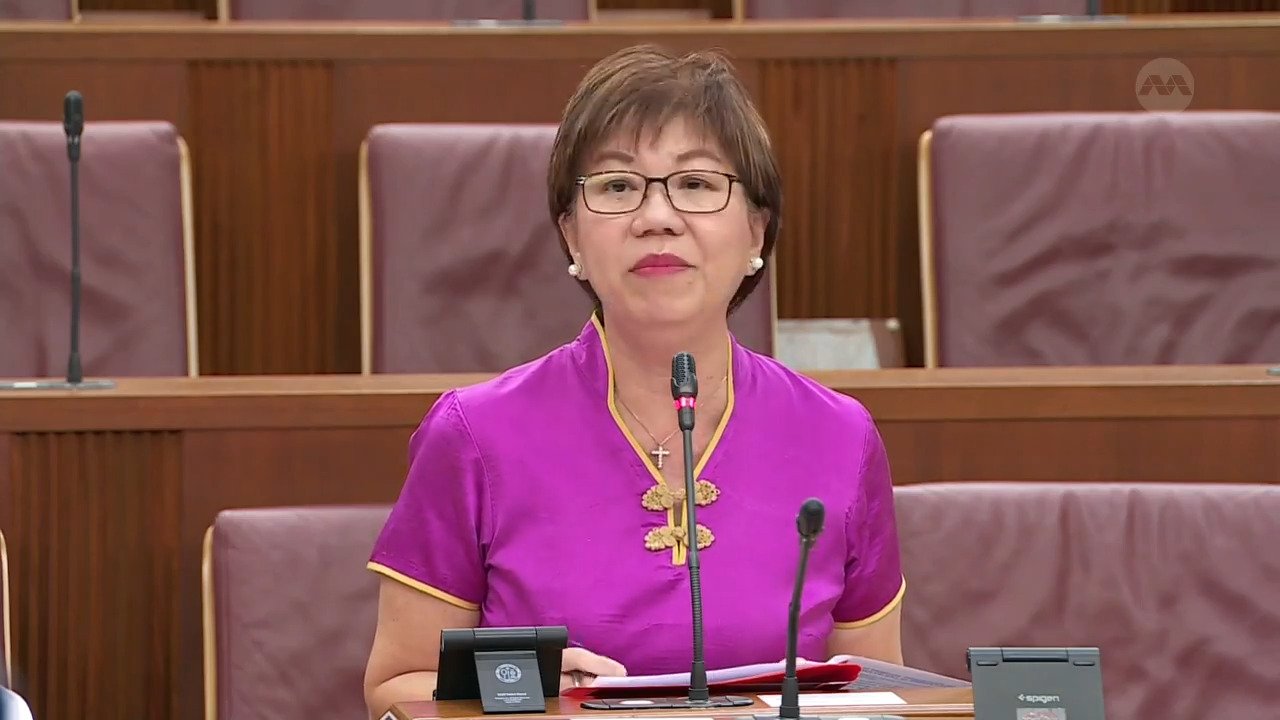On the Criminal Procedure (Misc Amendments) Bill
Image capture from CNA; Watch full speech here: https://www.channelnewsasia.com/watch/denise-phua-criminal-procedure-miscellaneous-amendments-bill-4100011
Yesterday in Parliament, I highlighted the need to protect the rights and well-being of the vulnerable in our criminal justice system. Part of the debate on the Criminal Procedure (Misc Amendments) Bill.
Here’s a written extract:
“.. Sir, I recognize the need for law enforcement agencies (LEAs) to have greater power to conduct criminal investigations efficiently and effectively.
However, I am concerned about protecting the rights and interests of vulnerable individuals, particularly those with disabilities or special needs or with limited education.
Some may not fully understand or be able to articulate their thoughts and feelings. Others may not grasp the implications of their actions due to their disabilities. Some are at risk of being exploited or coerced into illegal activities, such as acting as drug mules or committing crimes under the influence of others. Even when they speak what they believe is the truth, some may not comprehend the consequences of their words or actions.
Therefore, it is crucial to safeguard their safety, dignity, rights, and well-being while maintaining the integrity of the legal process.
There are well-recognized best practices for protecting the rights, dignity, and well-being of vulnerable individuals within criminal justice systems.
I would like to outline some of these practices and request the Ministry's feedback on their implementation in our country's justice system:
a. First, investigations should employ specialized interview techniques that are trauma-informed, age-appropriate, and sensitive to disabilities.
b. Second, interviews should be conducted in a safe and supportive environment.
For several years now, the government's Appropriate Adult Scheme has allowed independent, trained volunteers (i.e., Appropriate Adults) to accompany young or vulnerable individuals during interviews with LEAs. Many Appropriate Adults are generalists trained only once upon recruitment and play a limited role in safeguarding the rights and well-being of vulnerable persons.
I seek an update on the Appropriate Adult Scheme's current status, including the number of volunteers deployed, training provided, accomplishments, challenges, and future plans for enhancement.
c. Third, there should be personnel trained in handling disabilities within the police force, medical teams conducting forensic medical examinations, and agencies like the Public Defense Office.
Vulnerable individuals must have access to legal representation that understands their specific needs. It is essential to provide specialized training for law enforcement and the judiciary on how to handle cases involving such individuals sensitively. These training programs should be mandatory, ongoing, and available both in person and online.
Ideally, Specialized Units with experts in child psychology, geriatrics, disability services, and trauma should be created to offer advice, assistance, and referrals in investigations involving vulnerable individuals.
d. Fourth, inter-agency coordination and collaboration should be enhanced to provide appropriate and streamlined support for vulnerable individuals.
For instance, the participation rate and usability of MSF's Developmental Disability Registry could be improved to aid the criminal justice system.
For incarcerated individuals with developmental and other related disabilities, Appropriate Facilities should be established separate from those for typical offenders. We can tap on the learnings from the rehabilitation programs run by TRYBE and halfway houses operated by various social service agencies.
CONCLUSION. The criminal justice process must effectively protect vulnerable individuals, especially those with disabilities, special needs, or limited education, from the point of arrest, through interviews, trials, sentencing, and incarceration.
Failing to do so would constitute an injustice.
Notwithstanding, I support the Bill. “

